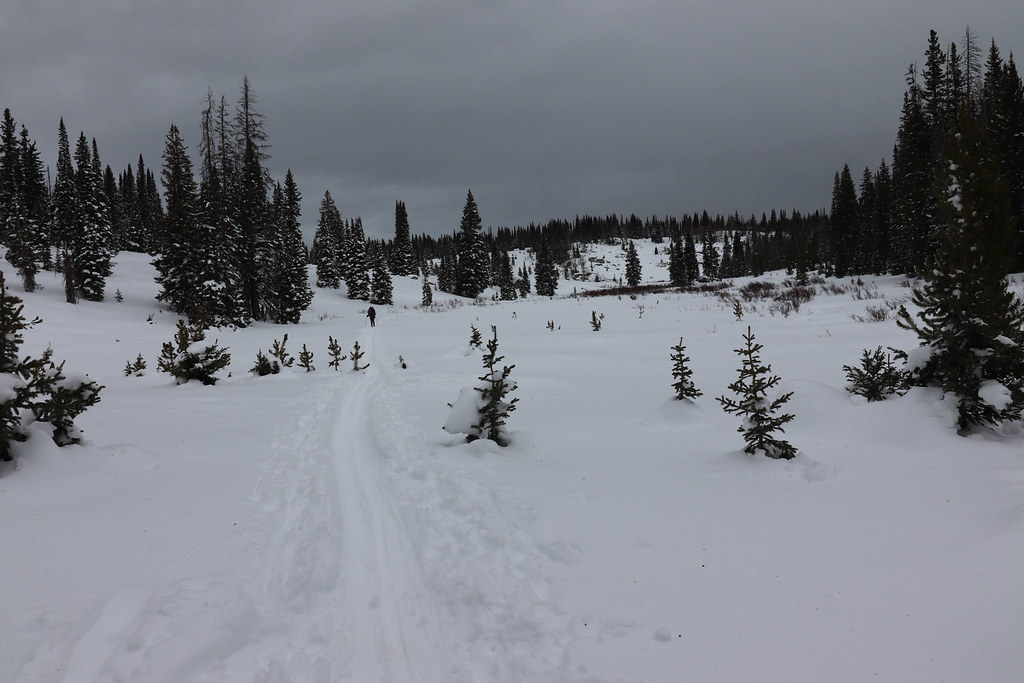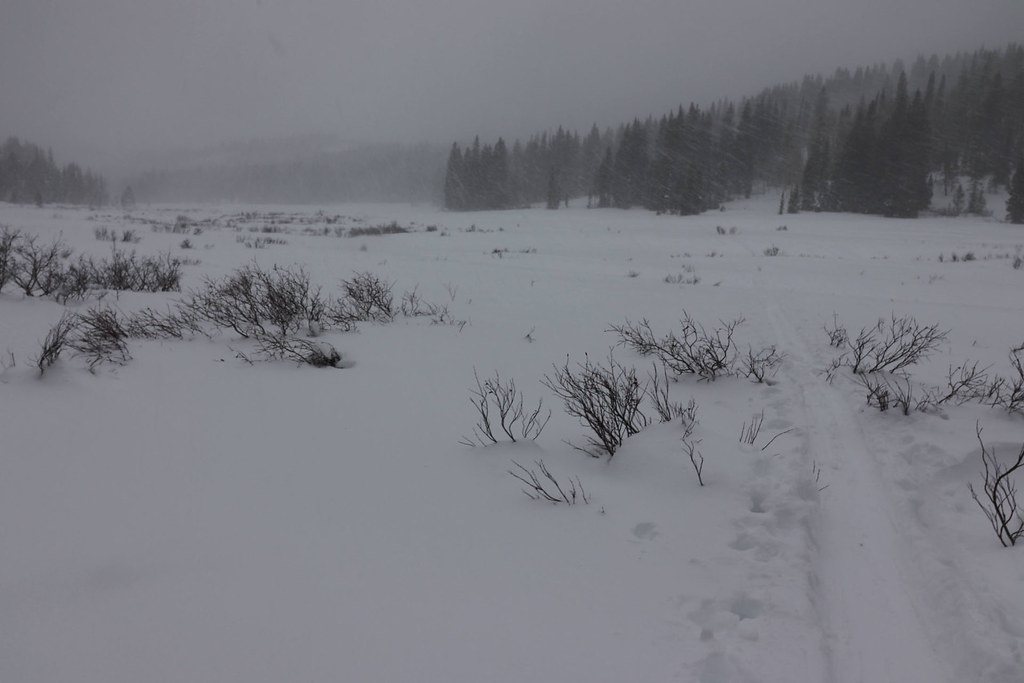Fast forward to December 20 and there we were on the Hogan Park Trail at Rabbit Ears Pass in Colorado with 60-pound packs and our brand new Asnes Nansen skis. We couldn’t have dreamed of better weather: daytime temperatures were to be in the 30s with overnight lows around 20 degrees--quite warm for December in the Colorado Rockies!
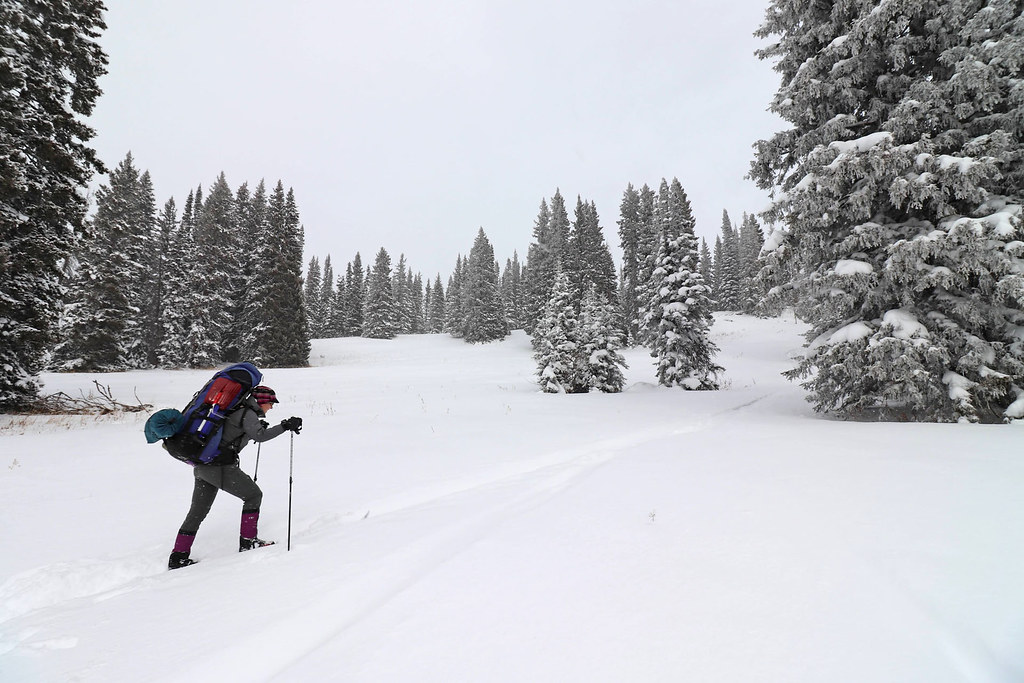
Though the Hogan Park Trail travels a difficult 7.5 miles from Rabbit Ears Pass to Steamboat Ski Area, our plan was to only ski the beginning section which journeys over easy rolling hills through meadows and forests. After a few miles, we would set up camp, spend the following day touring around for fun and return to the trailhead the third day. A big snowstorm was forecasted to arrive on the final afternoon so we wanted to make sure we were back to the car before it rolled in.
As we weren’t sure how it would feel to ski with heavy packs, we opted to put our Asnes X-Skins on right away and leave them on for the entire ski in. The last thing we wanted to do was lose traction on the uphills and slide backwards and fall with such heavy loads.
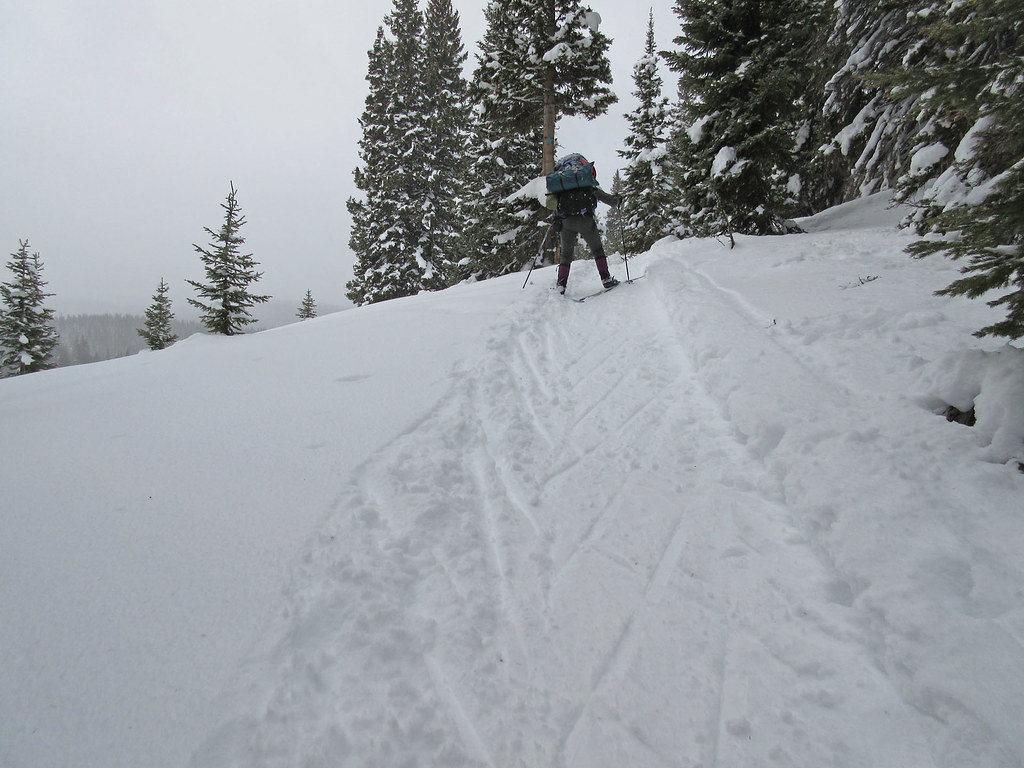
Other skiers had already travelled the trail and our Nansens slid beautifully on the packed surface. I was pleasantly surprised by how wonderful the kick and glide was even with heavy packs and skins.

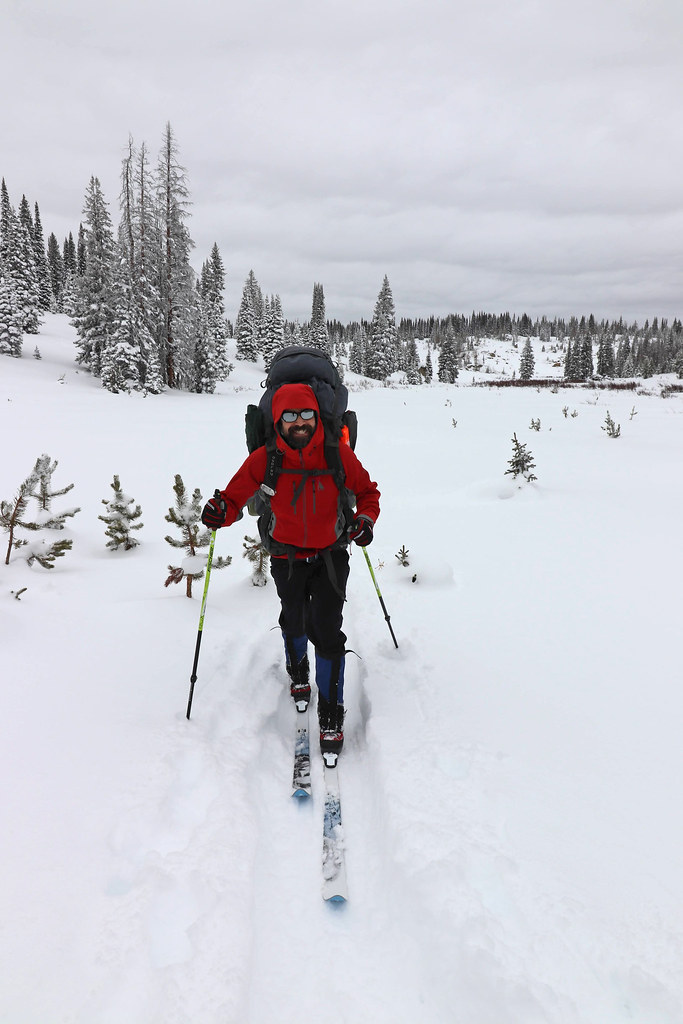
One tricky thing was the deep trench of the trail, narrow and quite hardened, which didn’t leave much space for snowplowing. It was also challenging to leave the trail to make one’s own downhill turns as the snow wasn’t deep enough to cover the minefield of boulders and fallen logs hiding under the surface.
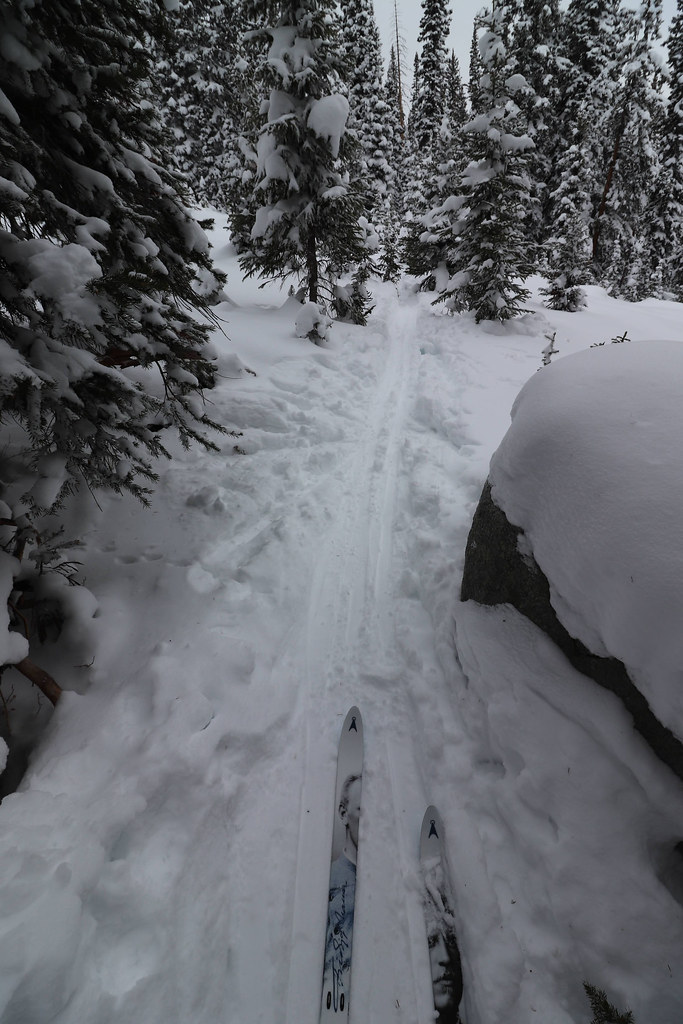
I made it down most of the hills with an odd combination of creating friction between the sides of my boots and the edge of the ski track, micro-snowplowing and side-stepping. Maintaining my center of gravity while traveling downhill with a heavy pack was also hard and the slightest bobble sent me off balance. A few times I fell and flailed around like an upside-down turtle until I could wiggle out of my pack.
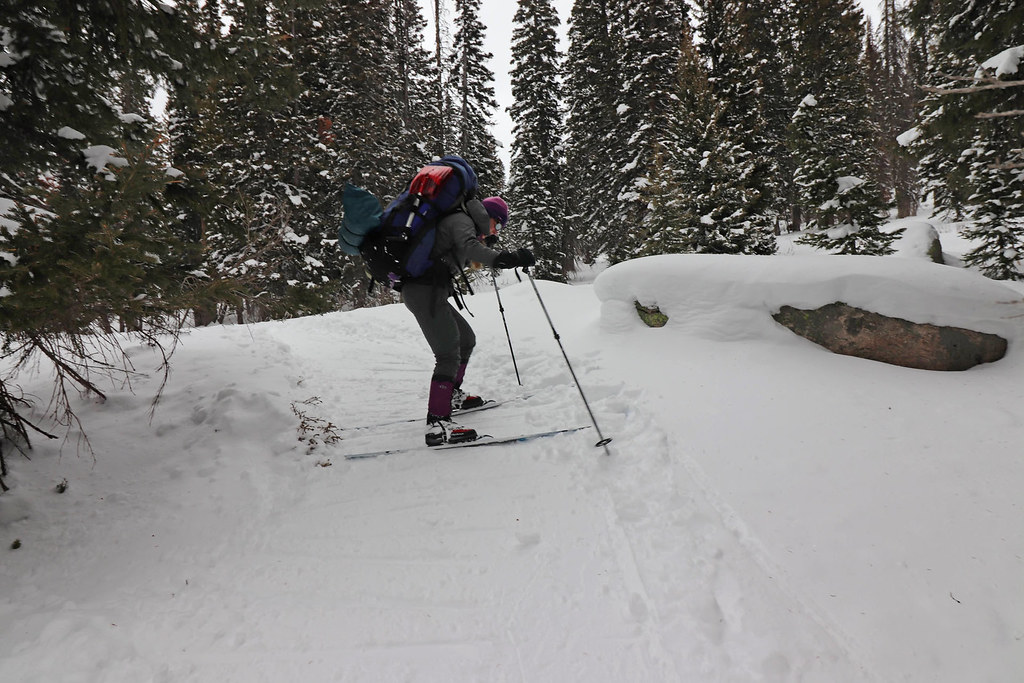

As evening approached, we noted an area that would be good for setting up camp about 500 feet off the main trail, out of sight, and along the edge of a tree grove that created a natural windbreak.
This is where the going got tough. This year, Colorado’s snowpack has consisted of a deep layer of sugary snow at the ground level covered by dense wind slab on top, and the state has had dangerous avalanche conditions as a result. Though we were far from any avalanche-prone terrain, this same snowpack made for very tricky travel, even in flat areas. Once we left the packed-down trail, we broke through the wind slab and wallowed in the crystals below. In some places it felt bottomless and thoughts of getting sucked completely under filled my imagination (though I knew that was impossible). Progress was ridiculously slow at times, and I wondered if we were experiencing the dreaded “pool cover syndrome” that is sometimes described with soft, round-flex skis such as the Nansen. As we tried to make progress up the slight incline, not only did we sink in up to our knees (or deeper), it felt like the tips and tails of our skis were higher than the middle section. I could see our camping spot ahead, but it felt like I was traveling in place and couldn’t get there. Every time I would make a foot of progress forward, I would sink in and slide a foot back.
We ended up ditching our packs for the last couple hundred feet and skiing to camp without them. Without the packs, we floated better on the snow. We skied back and forth on that final stretch of snow to consolidate it, went back to retrieve our packs, and then made it to camp with few problems.
We set up our tent, began melting snow and making dinner, and enjoyed a wonderful night in the wintry backcountry.
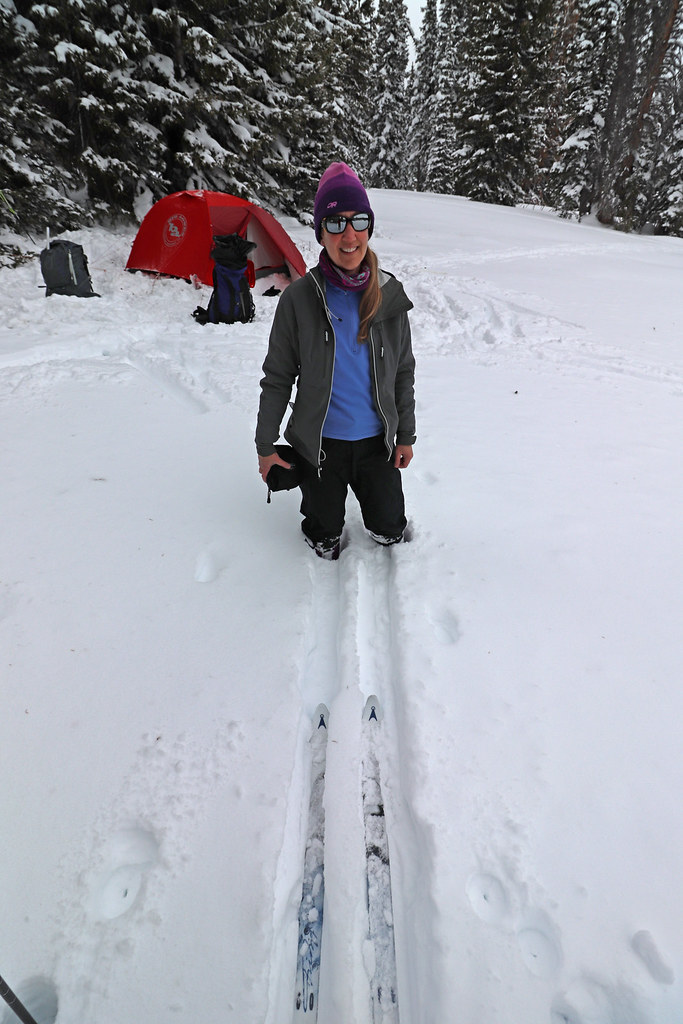



The following day went day touring in the area around camp with much lighter loads. Our Nansens traveled like a dream on the consolidated ski track and performed wonderfully through untracked areas as well. We also skied down an open gentle slope and they turned beautifully.


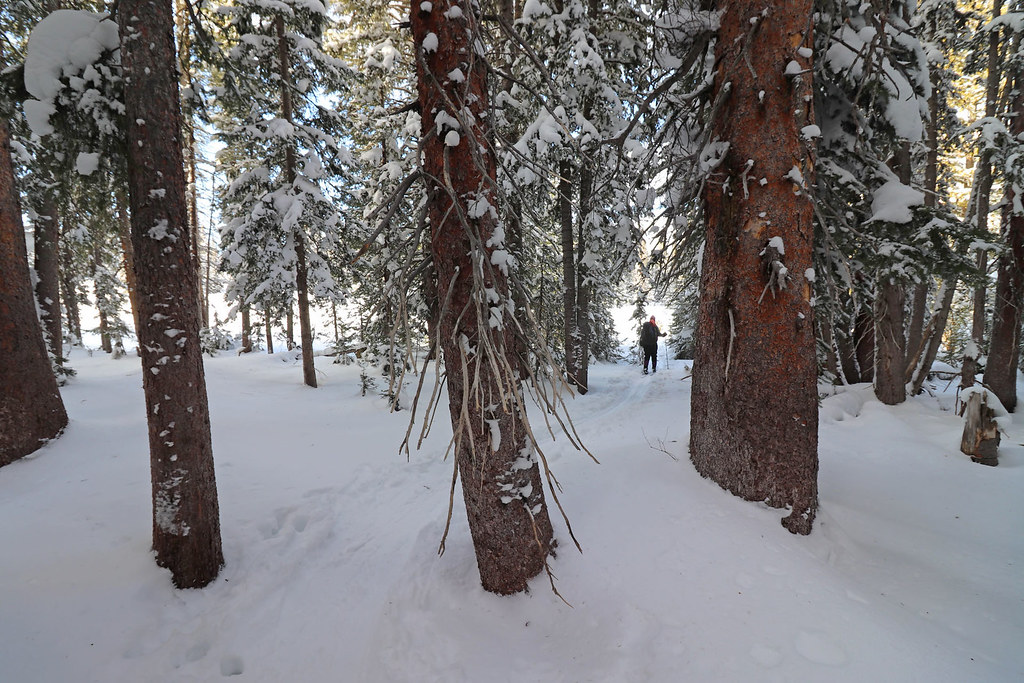
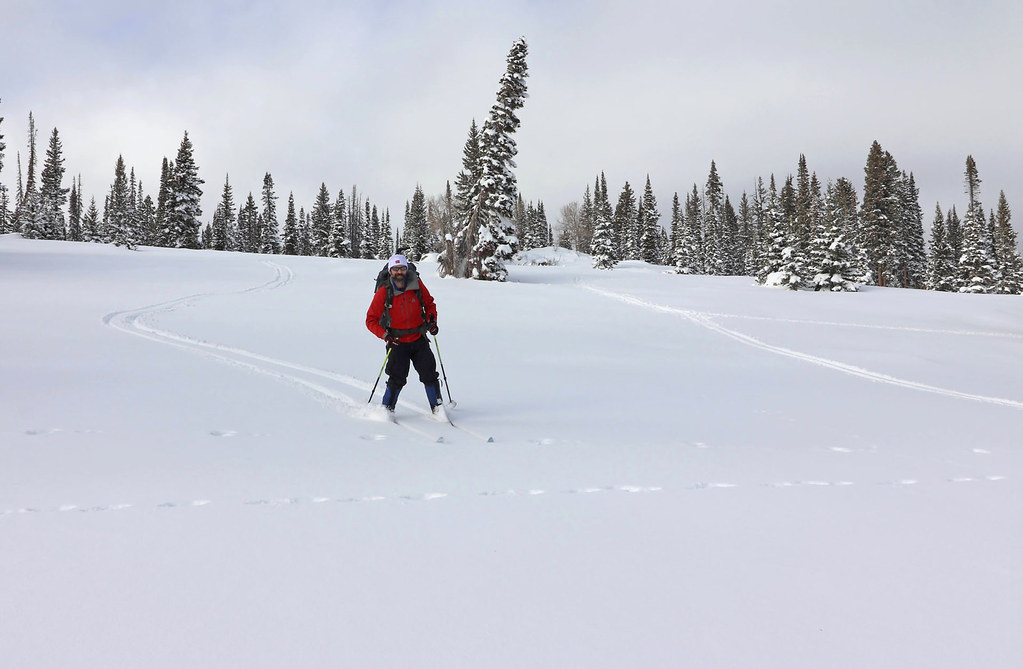




While traveling off-trail, we sunk a few times but it didn’t happen often. It seemed like the trouble we had getting to camp the night before was related to skiing in highly unconsolidated snow while carrying the big packs. I am 145 pounds while dressed in winter layers and purchased 190 cm Nansen skis. That is the perfect size for my weight plus a daypack, but probably not ideal for a heavy overnight pack. My guess is that we just exceeded the capabilities of our skis in those particular conditions.
Fortunately, we plan to use our Nansens mostly for day trips with light loads. When we do use them for winter camping, we understand that there may be some limitations. I also think the snow conditions were unusually difficult. I look forward to testing out our Nansens on additional winter camping trips with heavy loads to get more of a feel for how they do in a variety of snow types. We may eventually get a sled to help remedy the situation as well.
That evening, we did some fun transceiver practice in the meadow next to camp and then enjoyed a short ski tour under the stars after dinner. It was a magical experience with snow crystals sparkling like glitter under the moonlight.



We woke up to a spectacular blue sky and balmy temperatures on the third morning, but these conditions were short lived. Clouds from the incoming storm were piling up to the west and ushering in cold winds. Hoping to capture one final moment from this delightful trip, I pulled out my sketchbook and painted the meadow view from camp before we packed up and headed out.



The storm arrived exactly on schedule and one-half mile from the trailhead we were surrounded by a magnificent snow squall that created a perfect finale to our solstice trip. We arrived back at the car grateful for the incredible moments spent in nature and eager for the next adventures on our Nansen skis.
